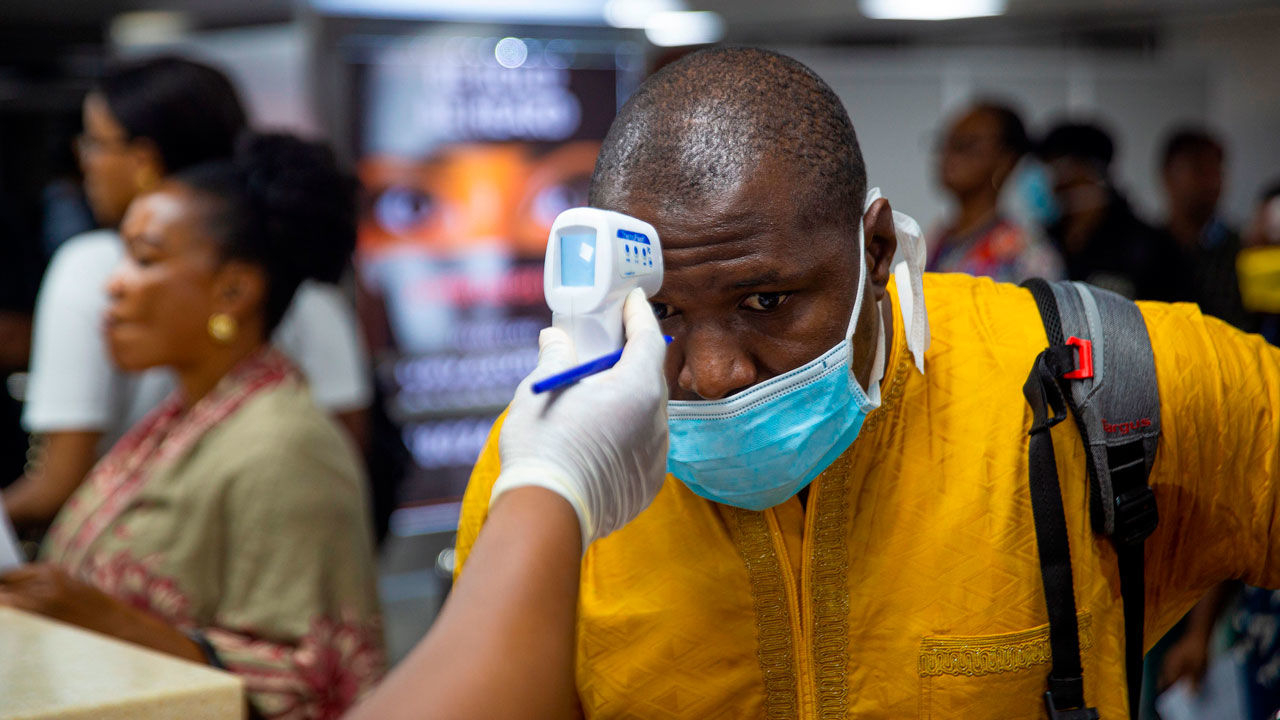1.
In a blog for Africa is a Country, South African author and opinion maker Sisonke Msimang questions the idea that the current corona crisis can bring opportunities for a better and fairer world. Msimang, who delivered the first ZAM Nelson Mandela Lecture in 2019, recalls that black people, as well as women and queer people, do not feel vulnerable for the first time as a group, like many people who grew up in privileged and prosperous countries. 'Those of us who fall outside the bubbles of entitlement that have come to define the modern economy know what it means to live with fragility. We also know how easy it is for privileged people to lash out at us'.
Msimang's fear is also motivated by a reality in many Western countries that lacks tolerance towards 'minorities'. 'We are the first to be targeted when stress is high. I am concerned about social disorder and panic and what it looks like when it is turned against "foreigners" in Europe and America and Australia - and of course in South Africa too, where Apartheid has left us with the capacity to hate fellow Africans women we now consider to be strangers'.
Rasna Warah, on Nairobi based platform The Elephant is more optimistic about a 'silver lining in the corona pandemic’. Can this global health crisis also provide us with ‘the opportunity to put an end to the rising racism and fascism, unbridled capitalism and militarisation, xenophobia and wanton destruction of the environment?’, she asks, and: ‘For once Africans are not being blamed’.
2.
‘In moments of political, social and ecological crises, Kenyans turn to God, supposedly for guidance’, Damaris Parsitau writes in a blog for the Nairobi-based The Elephant ‘In a country with a highly educated and exposed population, pandemics like COVID-19 and HIV/AIDs are still said to be caused by the devil and other dark forces’.
This misguided belief is extremely worrysome. ‘No amount of prayers and faith healing could cure this virus. African Christians have been praying for a cure for AIDS/HIV and Ebola for decades not but not a single person has certainly been cured of these dangerous viruses. The same logic should apply to COVID-19’.
Parsitau, who is a Senior Lecturer at the Department of Philosophy, History and religious Studies at Egerton University in Kenya, observes: ‘This is not a far-fetched assertion: Every time we are faced with a crisis as a country, the government, in collusion with religious leaders, call for prayers. Saturday, March 21, 2019 was slated as a national day of prayer by President Uhuru Kenyatta, who asked Kenyans to pray for forgiveness. Kenyans who have suffered years of neglect and broken healthcare systems must ask what we are repenting for’.
3.
In another analysis for The Elephant, writer and cartoonist Patrick Gathara digs into the Kenyan government prevention campaign against corona and asks if the rulers are talking to a privileged few? Are they easily copying Western calls for social distancing while knowing that poor communities cannot handle this, and health facilities are not in reach because of decades of breakdown?
‘Since the virus threatens all, both rich and poor, it will require a whole society effort to confront it. Top-down directives will not suffice. In any case, after decades of hollowing out the state from within, the ability of the governing elites to enforce them is severely compromised. Thus it will be critical to work with communities to translate WHO advice into practical protocols that cater to the daily realities of the majority of the population rather than to the global imaginings of a privileged few’.
4.
An editorial in the South African Daily Maverick (DM) resonates with Gathara's insights. The DM's advise to President Ramaphosa: ‘Recognise, respect and speak to poor people’s fears and their hearts, not only to the stock markets and urban elites’.
The editorial also emphasises the need for correct terminology in prevention campaigns. Referring to lessons learned from the fight against hiv/aids, DM argues that terms like 'Corona victims who spread the virus' should be avoided. It suggests that people are willingly spreading the disease. 'Social distancing' is also problematic. 'Physical distancing' would be better since, socially, we actually need to come together, more than ever.
5.
Obviously, in some analysis in South African media the government’s response to the HIV/Aids crisis under former President Mbeki and today's response to the corona crisis under President Ramaphosa are being compared. In the Daily Maverick, Mia Malan recollects that according to Mbeki HIV/Aids 'did not exist', that 'journalists were the enemy', that activists fighting for treatment for all had to 'shut up and listen'. Today it's different: ‘It seems, the ANC is, at this moment in history, using its great power for good – for state protection rather than State Capture’.
6.
What about the funds being made available to fight corona? On roape.net, writer and lawyer Femi Aborisade questions the financial interventions by his government. The support for local manufacturers, import substitution by the business-class and health authorities to ensure laboratories, researchers and innovators work with global scientist to patent and produce vaccines and test kits in Nigeria ‘is a perfect guise to pass public resources to the business class. (...) The government is in a hurry to use the crisis to pass public wealth to their business partners’.
On the same platform writers from Burkina Faso, Zimbabwe, Kenya and Zimbabwe share Aborisade's sentiment. But is also the almost complete destruction of health care services as a result of decaded of kleptocratic rule and so-called 'social adjustment programmes' enforced by international financial institutions that make prospects of a succesfull response to the present crisis look very grim.


